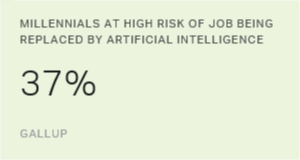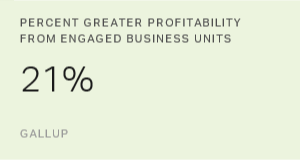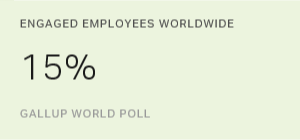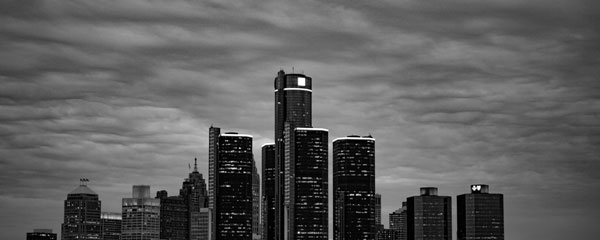This is the first article in a three-part interview series.
All leaders understand that they have an impact on their companies; few more so than DTE Energy Chairman and CEO Gerry Anderson. "When I became president, culture began to be more personal," he says. And for him, creating a culture that embraced employee engagement and continuous improvement as fundamental to DTE's success was critical. That conviction was bolstered in 2008 when $200 million of the Detroit-based utility company's revenue evaporated in the Great Recession.
Anderson and the rest of DTE's 10,000 workers devoted themselves to cutting costs and replacing the lost $200 million. By 2009, they were doing better than ever and faced no layoffs in an economy noted for them. One could describe DTE's recovery as miraculous, but no miracle saved $200 million and thousands of jobs. DTE's success was the result of hard work, commitment and inspired leadership -- in other words, culture.
Still, Anderson worried that the high energy and engagement that got DTE through the recession was a crisis response and when the crisis ended, DTE's culture of engagement and continuous improvement would disappear. "That 2009 experience absolutely convinced me that the key to us being a great company was to tap that well of energy, but it had to be around purpose, aspiration and belief," he says.
That conviction has become the core driver of Anderson's leadership purpose and DTE's operating strategy. In the following interview between Anderson and Jim Clifton, Gallup's chairman and CEO, Anderson discusses how his views on culture, employee engagement and continuous improvement evolved -- and why he believes all of them are his personal responsibility.
Clifton: How does it manifest when a CEO says employee engagement is something I care about?
Anderson: I had kind of a conversion experience coming out of the recession. Before I was promoted to president in 2006, I'd look at our Gallup engagement results, which weren't great, and think, well, that's interesting. But since there were a lot of pieces and parts that I didn't control, I didn't feel broad ownership. Once I was president and saw those results, I began to think differently. I realized that how people were feeling was directly connected to the work environment -- something I, and my leadership team, were responsible for. Our survey results were telling me that our people were coming to work here, but didn't always like it.
So, coming out of the recession like we did, I naturally began to wonder how to make our people's response to that crisis an everyday event. What does it take for employees to bring their best energy to work and use each day as an opportunity for improvement? What makes a company great? And I came to one conclusion: It's all about culture. If we wanted our people to believe in something bigger than themselves and aspire to great things, then we needed to create the conditions for this to happen. That's when those engagement results got real for me.
The great human endeavors have unity of purpose and mindset, and that's really what engagement is. The ultimate driver of our performance as a company is the energy of our people, which is just another way of saying engagement. If you have that, everything becomes easy. And if you lose it, everything becomes hard. I believe that 100%.
Clifton: Did you change the managers or anything? Did you do any shuffling like that?
Anderson: Not really. There were a lot of good, capable people here who'd been brought up in a different mindset about leadership, culture and employee engagement. People who needed to have a conversion experience like mine. So we started at the top.
My team went to our annual offsite in 2010 to decide what we wanted to create. It was a defining experience with that team of people because they talked about their lives, their history, what they cared about.
People can only create what they care about, and I wanted to know why they cared about what they did. Because if it doesn't matter to you, you're not going to put that much into it. They kept saying, "I want people who work here to love it and be proud." In various ways they said, "I don't want to work for a mediocre company; I want to work for a great company." We realized that meant that we had to go to work on this culture and DTE's engagement.

Create Exceptional Workers
Strengthen employee performance with a culture of engagement.
The other thing I started to do in 2010 was think about a systematic model of priorities for the company -- the pieces we needed to put together to make the company great. And the very first block in the model was employee engagement. Our system of priorities starts with employee engagement, because I'm a true believer that if you fail at that block, you won't be able to do anything else. It goes from employee engagement to top-decile customer service, to continuous improvement, to development of commercial opportunities. Because those are all things that people who are energized and excited can do well.
Over the next year, we pulled all of this together into DTE's "operating system": our aspirations, our purpose, our values and our priorities. And we started talking with our people about these things, a lot. We began shaping a culture for the company we wanted to be.
Clifton: What do you say to CEOs who are where you were in 2010? Or in worse shape?
Anderson: I think there are a lot of companies that are broken because their culture, their people and their performance ethic are broken. There's like this collective energy of a group, and I didn't know how to tap it when I came in. How do you touch 10,000 people? I've learned that in this job, the key role is to energize 10,000 people with a common cause. People respond to what you care about. If you want to change something, you need to start shining your energy on it. People will direct their energy to what you care about, and they change it. That's what leaders do -- they pull energy. Do that and you can transform a culture and a company.
In that very first year after the recession, we went from a 50th-percentile engagement ranking in Gallup's global database to the 70th, and we've been moving north ever since.
In the second interview of this series, Anderson will describe how DTE came out of the Great Recession stronger than before.




